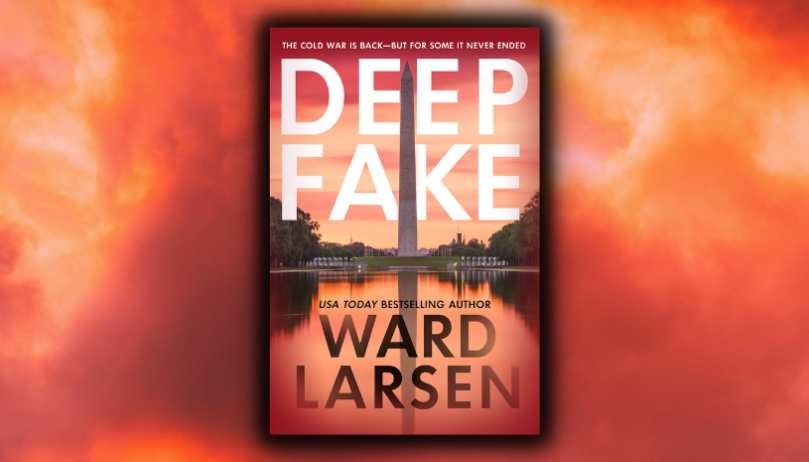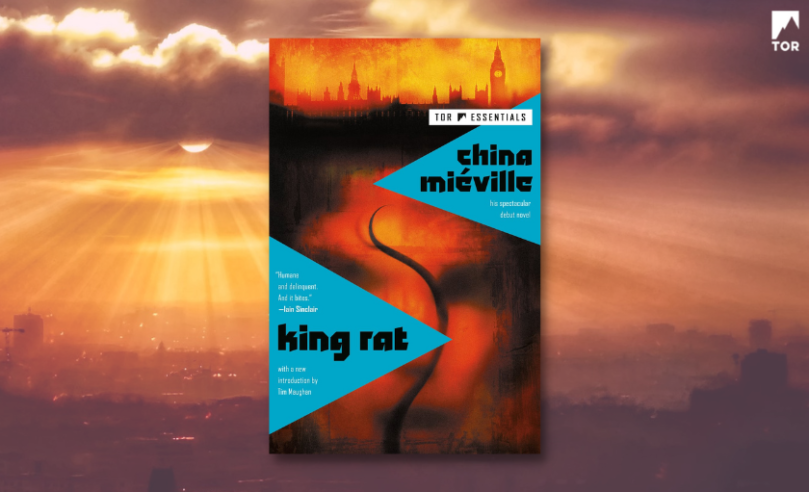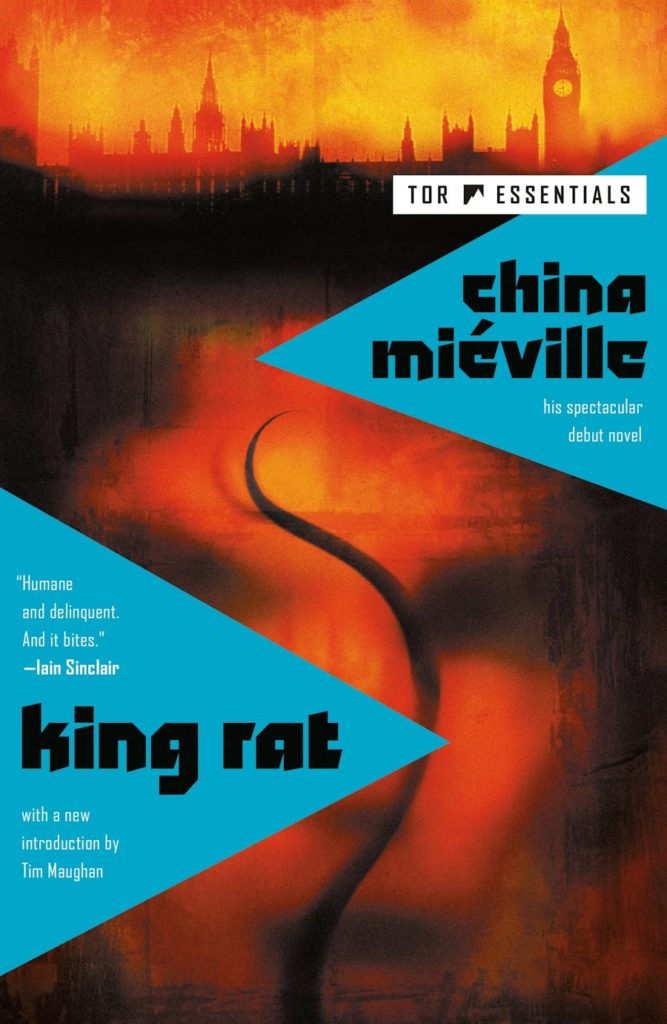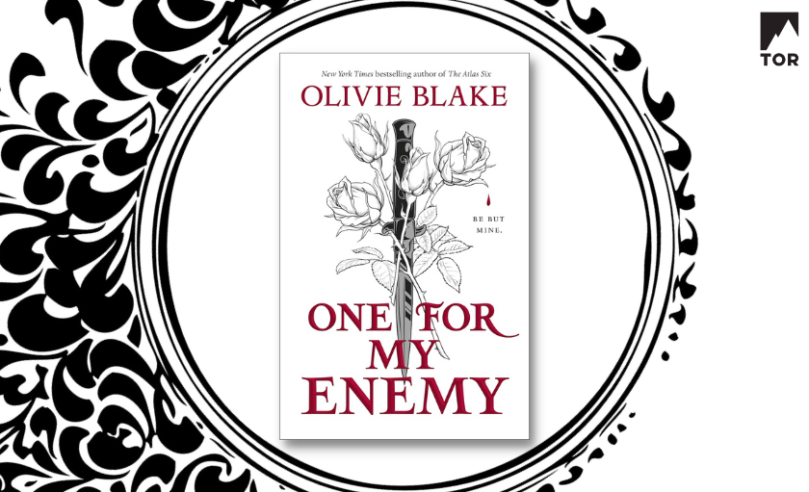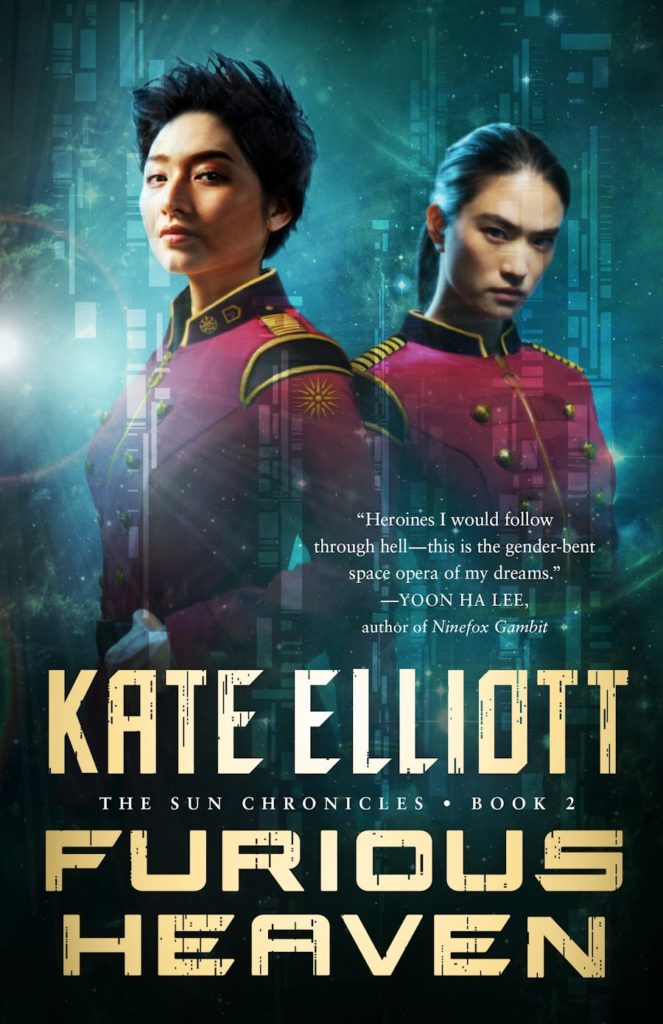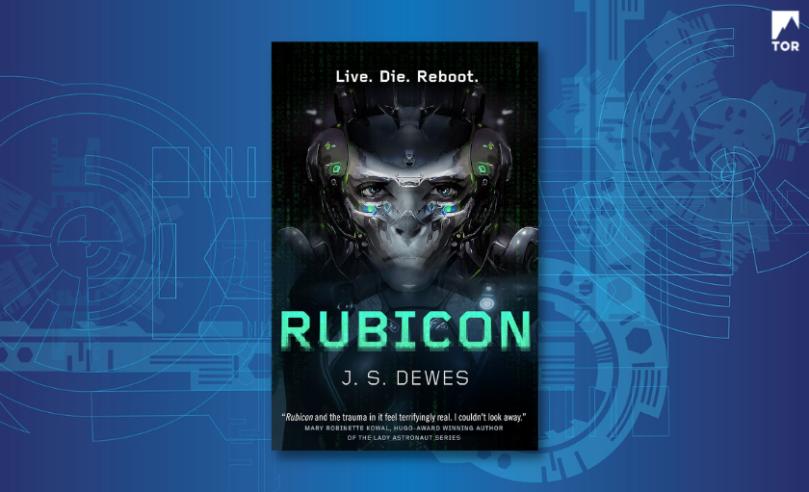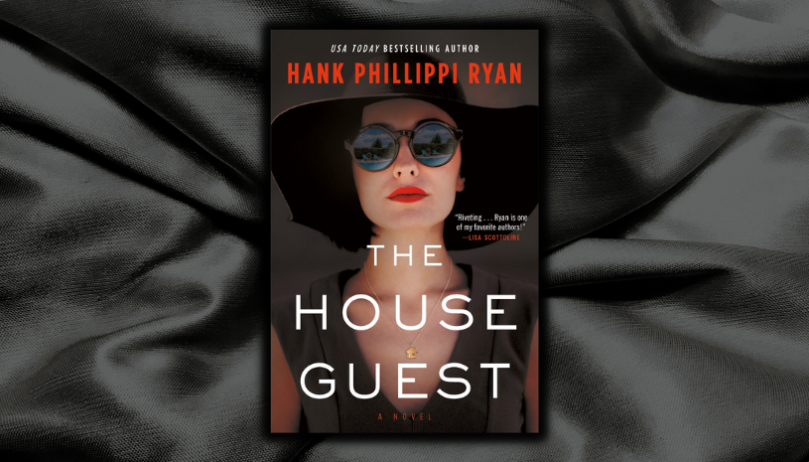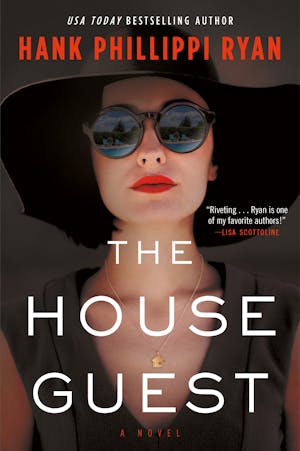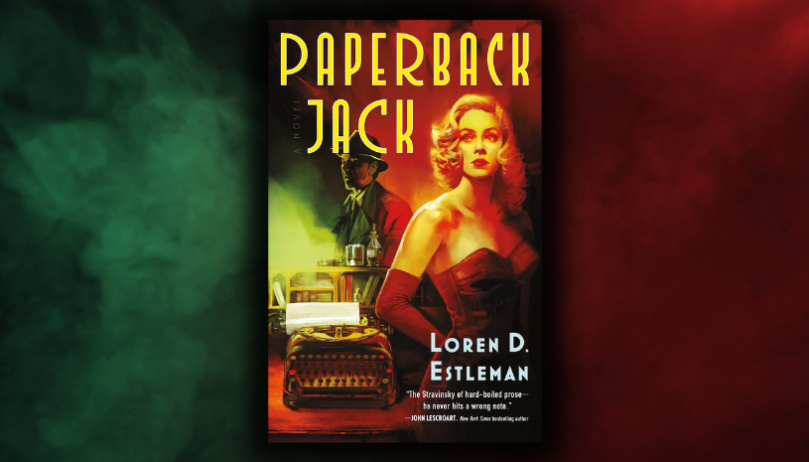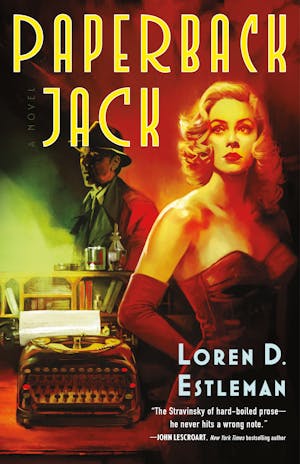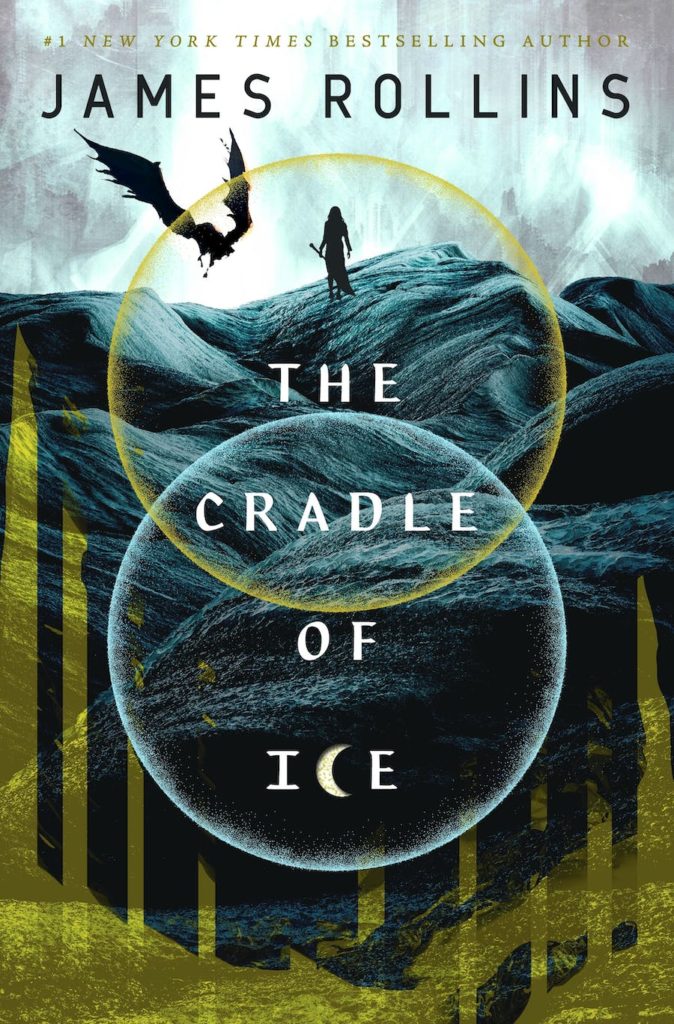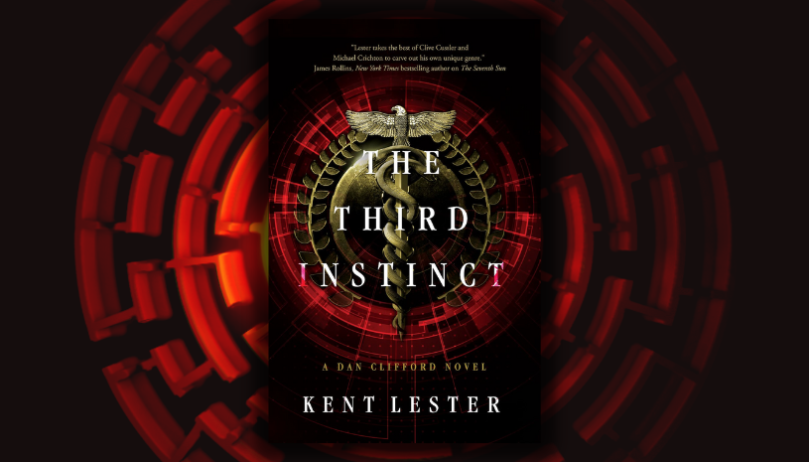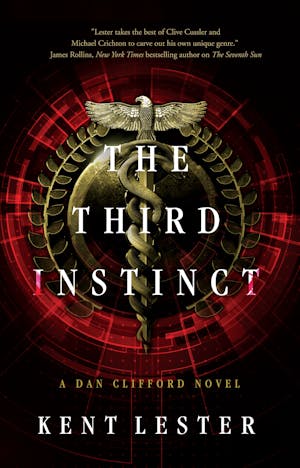




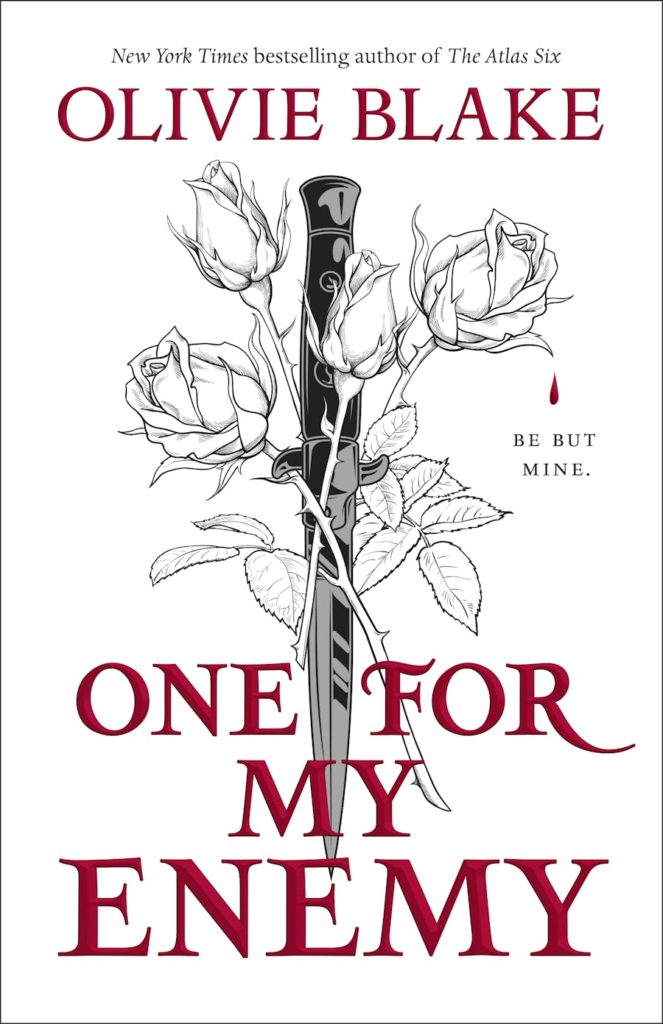
From New York Times bestselling author Olivie Blake comes an intricate web of love, magic, and rival witch families in New York City.
This new hardcover edition will include illustrated endpapers from artist Lasq.Draws plus brand-new interior illustrations from Little Chmura*
In modern-day Manhattan where we lay our scene, two rival witch families fight to maintain control of their respective criminal empires.
On one side of the conflict are the Antonova sisters — each one beautiful, cunning, and ruthless — and their mother, the elusive supplier of premium intoxicants, known only as Baba Yaga. On the other side, the influential Fedorov brothers serve their father, the crime boss known as Koschei the Deathless, whose community extortion ventures dominate the shadows of magical Manhattan.
After twelve years of tenuous co-existence, a change in one family’s interests causes a rift in the existing stalemate. When bad blood brings both families to the precipice of disaster, fate intervenes with a chance encounter, and in the aftershocks of a resurrected conflict, everyone must choose a side. As each of the siblings struggles to stake their claim, fraying loyalties threaten to rot each side from the inside out.
If, that is, the enmity between empires doesn’t destroy them first.
Please enjoy this free excerpt of One for My Enemy by Olivie Blake, on sale 4/4/23.
1.1
(Enter the Fedorov Sons.)
The Fedorov sons had a habit of standing like the points of an isosceles triangle.
At the furthest point forward there was Dimitri, the eldest, who was the uncontested heir; the crown prince who’d spent a lifetime serving a dynasty of commerce and fortune. He typically stood with his chin raised, the weight of his invisible crown borne aloft, and had a habit of rolling his shoulders back and baring his chest, unthreatened. After all, who would threaten him? None who wished to live a long life, that was for certain. The line of Dimitri’s neck was steady and unflinching, Dimitri himself having never possessed a reason to turn warily over his shoulder. Dimitri Fedorov fixed his gaze on the enemy and let the world carry on at his back.
Behind Dimitri, on his right: the second of the Fedorov brothers, Roman, called Roma. If Dimitri was the Fedorov sun, Roman was the moon in orbit, his dark eyes carving a perimeter of warning around his elder brother. It was enough to make a man step back in hesitation, in disquietude, in fear. Roman had a spine like lightning, footfall like thunder. He was the edge of a sharp, bloodied knife.
Next to Roman stood Lev, the youngest. If his brothers were planetary bodies, Lev was an ocean wave. He was in constant motion, a tide that pulsed and waned. Even now, as he stood behind Dimitri, his fingers curled and uncurled reflexively at his sides, his thumb beating percussively against his thigh. Lev had a keen sense of danger, and he perceived it now, sniffing it out in the air and letting it creep between the sharp blades of his shoulders. It got under his skin, under his bones, and gifted him a shiver.
Lev had a keen sense of danger, and he was certain it had just walked in the room.
“Dimitri Fedorov,” the woman said, a name that, from her lips, might have been equally threatening aimed across enemy lines or whispered between silken sheets. “You still know who I am, don’t you?”
Lev watched his brother fail to flinch, as always.
“Of course I know you, Marya,” Dimitri said. “And you know me, don’t you? Even now.”
“I certainly thought I did,” Marya said.
She was a year older than Dimitri, or so Lev foggily recalled, which would have placed her just over the age of thirty. Flatteringly put, she didn’t remotely look it. Up close, Marya Antonova, whom none of the Fedorov brothers had seen since Lev was a child, had retained her set of youthful, pouty lips, as fitting to the Maybelline billboard outside their Tribeca loft as to her expression of measured interest, and the facial geography typically fallen victim to age— lines that might have begun expelling around her eyes or mouth, furrowed valleys that might have emerged along her forehead— had escaped even the subtlest indications of time. Every detail of Marya’s appearance, from the tailored lines of her dress to the polished leather of her shoes, had been marked by intention, pressed and spotless and neat, and her dark hair fell in meticulous 1940s waves, landing just below the sharp line of her collarbone.
She removed her coat in yet another episode of deliberation, establishing her dominion over the room and its contents via the simple handing of the garment to the man beside her.
“Ivan,” she said to him, “will you hold this while I visit with my old friend Dima?”
“Dima,” Dimitri echoed, toying with the endearment as the large man beside Marya Antonova carefully folded her coat over his arm, as fastidious as his employer. “Is this a friendly visit, then, Masha?”
“Depends,” Marya replied, unfazed by Dimitri’s use of her own diminutive and clearly in no hurry to elaborate. Instead, she indulged a lengthy, scrutinizing glance around the room, her attention skating dismissively over Roman before landing, with some degree of surprise, on Lev.
“My, my,” she murmured. “Little Lev has grown, hasn’t he?”
There was no doubt that the twist of her coquette’s lips, however misleadingly soft, was meant to disparage him.
“I have,” Lev warned, but Dimitri held up a hand, calling for silence.
“Sit, Masha.” He beckoned, gesturing her to a chair, and she rewarded him with a smile, smoothing down her skirt before settling herself at the chair’s edge. Dimitri, meanwhile, took the seat opposite her on the leather sofa, while Roman and Lev, after exchanging a wary glance, each stood behind it, leaving the two heirs to mediate the interests of their respective sides.
Dimitri spoke first. “Can I get you anything?”
“Nothing, thank you,” from Marya.
“It’s been a while,” Dimitri noted.
The brief pause that passed between them was loaded with things neither expressed aloud nor requiring explanation. That time had passed was obvious, even to Lev.
There was a quiet exchange of cleared throats.
“How’s Stas?” Dimitri asked casually, or with a tone that might have been casual to some other observer. To Lev, his brother’s uneasy small talk was about as ill-fitting as the idea that Marya Antonova would waste her time with the pretense of saccharinity.
“Handsome and well hung, just as he was twelve years ago,” Marya replied. She looked up and smiled pointedly at Roman, who slid Lev a discomfiting glance. Stas Maksimov, a Borough witch and apparent subject of discussion, seemed about as out of place in the conversation as the Borough witches ever were. Generally speaking, none of the three Fedorovs ever lent much thought to the Witches’ Boroughs at all, considering their father’s occupation meant most of them had already been in the family’s pocket for decades.
Before Lev could make any sense of it, Marya asked, “How’s business, Dima?”
“Ah, come on, Masha,” Dimitri sighed, leaning back against the sofa cushions. If she was bothered by the continued use of her childhood name (or by anything at all, really) she didn’t show it. “Surely you didn’t come all the way here just to talk business, did you?”
She seemed to find the question pleasing, or at least inoffensive. “You’re right,” she said after a moment. “I didn’t come exclusively to talk business, no. Ivan.” She gestured over her shoulder to her associate. “The package I brought with me, if you would?”
Ivan stepped forward, handing her a slim, neatly packaged rectangle that wouldn’t have struck Lev as suspicious in the slightest had it not been handled with such conspicuous care. Marya glanced over it once herself, ascertaining something unknowable, before turning back to Dimitri, extending her slender arm.
Roman twitched forward, about to stop her, but Dimitri held up a hand again, waving Roman away as he leaned forward to accept it.
Dimitri’s thumb brushed briefly over Marya’s fingers, then retracted.
“What’s this?” he asked, eyeing the package, and her smile curled upward.
“A new product,” Marya said, as Dimitri slid open the thick parchment to reveal a set of narrow tablets in plastic casing, each one like a vibrantly colored aspirin. “Intended for euphoria. Not unlike our other offerings, but this one is something a bit less delicate; a little sharper than pure delusion. Still, it’s a hallucinogen with a hint of . . . novelty, if you will. Befitting the nature of our existing products, of course. Branding,” she half explained with a shrug. “You know how it goes.”
Dimitri eyed the tablet in his hand for a long moment before speaking.
“I don’t, actually,” he replied, and Lev watched a muscle jump near his brother’s jaw; another uncharacteristic twitch of unease, along with the resignation in his tone. “You know Koschei doesn’t involve himself in any magical intoxicants unless he’s specifically commissioned to do so. This isn’t our business.”
“Interesting,” Marya said softly, “very interesting.”
“Is it?”
“Oh, yes, very. In fact, I’m relieved to hear you say that, Dima,” Marya said. “You see, I’d heard some things, some very terrible rumors about your family’s latest ventures”—Lev blinked, surprised, and glanced at Roman, who replied with a warning head shake— “but if you say this isn’t your business, then I’m more than happy to believe you. After all, our two families have so wisely kept to our own lanes in the past, haven’t we? Better for everyone that way, I think.”
“Yes,” Dimitri replied simply, setting the tablets down. “So, is that all, Masha? Just wanted to boast a bit about your mother’s latest accomplishments, then?”
“Boast, Dima, really? Never,” Marya said. “Though, while I’m here, I’d like you to be the first to try it, of course. Naturally. A show of good faith. I can share my products with you without fear, can’t I? If you’re to be believed, that is,” she mused, daring him to contradict her. “After all, you and I are old friends. Aren’t we?”
Dimitri’s jaw tightened again; Roman and Lev exchanged another glance. “Masha—”
“Aren’t we?” Marya repeated, sharper this time, and now, again, Lev saw the look in her eyes he remembered fearing as a young boy; that icy, distant look her gaze had sometimes held on the rare occasions when he’d seen her. She’d clearly learned to conceal her sharper edges with whatever mimicry of innocence she had at her disposal, but that look, unlike her falser faces, could never be disguised. For Lev, it had the same effect as a bird of prey circling overhead.
“Try it, Dima,” Marya invited, in a voice that had no exit; no room to refuse. “I presume you know how to consume it?”
“Masha,” Dimitri said again, lowering his voice to its most diplomatic iteration. “Masha, be reasonable. Listen to me—”
“Now, Dima,” she cut in flatly, the pretense of blithe civility vanishing from the room.
It seemed that, for both of them, the playacting had finally ceased, the consequences of something unsaid dragging the conversation to a sudden détente, and Lev waited impatiently for his brother to refuse. Refusal seemed the preferable choice, and the rational one; Dimitri did not typically partake in intoxicants, after all, and such a thing would have been easy to decline. Should have been easy to decline, even, as there was no obvious reason to be afraid.
(No reason, Lev thought grimly, aside from the woman who sat across from them, some invisible threat contained within each of her stiffened hands.)
Eventually, though—to Lev’s stifled dismay—Dimitri nodded his assent, taking up a lilac-colored tablet and eyeing it for a moment between his fingers. Beside Lev, Roman twitched forward almost imperceptibly and then forced himself still, dark eyes falling apprehensively on the line of their brother’s neck.
“Do it,” Marya said, and Dimitri’s posture visibly stiffened.
“Masha, give me a chance to explain,” he said, voice low with what Lev might have called a plea had he believed his brother capable of pleading. “After everything, don’t you owe me that much? I understand you must be angry—”
“Angry? What’s to be angry about? Just try it, Dima. What would you possibly have to fear? You already assured me we were friends, didn’t you?”
The words, paired with a smile so false it was really more of a grimace, rang with causticity from Marya’s tongue. Dimitri’s mouth opened, hesitation catching in his throat, and Marya leaned forward. “Didn’t you?” she repeated, and this time, Dimitri openly flinched.
“Perhaps you should go,” Lev blurted thoughtlessly, stepping forward from his position flanking his brother behind the sofa, and at that, Marya looked up, her gaze falling curiously on him as she proceeded to rapidly morph and change, resuming her sweeter disposition as if just recalling Lev’s presence in the room.
“You know, Dima,” she said, eyes still inescapably on Lev, “if the Fedorov brothers are anything like the Antonova sisters, then it would be very wrong of me to not reward them equally for our friendship. Perhaps we should include Lev and Roma in this,” she mused, slowly returning her gaze to Dimitri’s, “don’t you think?”
“No,” Dimitri said, so firmly it halted Lev in place. “No, they have nothing to do with this. Stay back,” he said to Lev, turning around to deliver the message clearly. “Stay where you are, Lev. Roma, keep him there,” he commanded in his deepened crownprince voice, and Roman nodded, cutting Lev a cautioning glare.
“Dima,” Lev said, senses all but flaring with danger now. “Dima, really, you don’t have to—”
“Quiet,” Marya said, and then, save for her voice, the room fell absent of sound. “You assured me,” she said, eyes locked on Dimitri’s now. It was clear that, for her, no other person of consequence existed in the room. “Spare me the indignity of recounting the reasons we both know you’ll do as I ask.”
Dimitri looked at her, and she back at him.
And then, slowly, Dimitri resigned himself to parting his lips, placing the tablet on the center of his tongue, and tilting his head back to swallow as Lev let out a shout no one could hear.
“It’s a new product, as I said,” Marya informed the room, brushing off her skirt. “Nothing any different from what will eventually come to market. The interesting thing, though, about our intoxicants,” she said, observing with quiet indifference as Dimitri shook himself slightly, dazed, “is that there are certain prerequisites for enjoyment. Obviously we have to build in some sort of precautioary measures to be certain who we’re dealing with, so there are some possible side effects. Thieves, for example,” she murmured softly, her eyes still on Dimitri’s face, “will suffer some unsavory reactions. Liars, too. In fact, anyone who touches our products without the exchange of currency from an Antonova witch’s hands will find them . . . slightly less pleasant to consume.”
Dimitri raised a hand to his mouth, retching sharply into his palm for several seconds. After a moment spent collecting himself, he lifted his head with as much composure as he could muster, shakily dragging the back of his hand across his nose.
A bit of blood leaked out, smearing across the knuckle of his index finger.
“Understandably, our dealers wish to partake at times, so to protect them, we give them a charm they wear in secret. Of course, you likely wouldn’t know that,” Marya remarked, still narrating something with a relevance Lev failed to grasp. “Trade secret, isn’t it? That it’s quite dangerous to try to sell our products without our express permission, I mean. Wouldn’t want someone to know that in advance, obviously, or our system would very well collapse.”
Dimitri coughed again, the reverberation of it still silent. Steadily, blood began to pour freely from his nose, dripping into his hands and coating them in a viscous, muddied scarlet streaked with black. He sputtered without a sound, struggling to keep fluid from dripping into his throat while his chest wrenched with coughs.
“We have a number of informants, you know. They’re very clever, and very well concealed. Unfortunately, according to one of them, someone,” Marya murmured, “has been selling our intoxicants. Buying them from us, actually, and then turning around to sell them at nearly quadruple the price. Who would do that, I wonder, Dima?”
Dimitri choked out a word that might have been Marya’s name, falling forward onto his hands and knees and colliding with the floor. He convulsed once, then twice, hitting his head on the corner of the table and stumbling, and Lev called out to his brother with dismay, the sound of it still lost to the effects of Marya’s spell. She was the better witch by far—their father had always said so, speaking of Marya Antonova even from her youth as if she were some sort of Old World demon, the kind of villainess children were warned to look for in the dark. Still, Lev rushed forward, panicked, only to feel his brother Roman’s iron grip at the back of his collar, pinning him in place as Dimitri struggled to rise and then collapsed forward again, blood pooling beneath his cheek where he’d fallen to the floor.
“This hurts me, Dima, it really does,” Marya sighed, expressionless. “I really did think we were friends, you know. I certainly thought you could be trusted. You were always so upstanding when we were children—and yes, true, a lot can happen in a decade, but still, I really never thought we’d be here.” She sighed again, shaking her head. “It pains me, truly, as much as it pains you. Though perhaps that’s insensitive of me,” she amended softly, watching Dimitri gasp for air; her gaze never dropped, not even when he began to jerk in violent tremors. “Since it does seem to be paining you a great deal.”
Lev felt his brother’s name tear from his lungs again, the pain of it raking at his throat until finally, finally, Dimitri fell rigidly still. By then, the whole scene was like a portrait, gruesomely Baroque; from the crumpled malformation of his torso, one of Dimitri’s arms was left outstretched, his fingers unfurled toward Marya’s feet.
“Well,” exhaled Marya, rising from the chair. “I suppose that’s that. Ivan, my coat, please?”
At last, with their brother’s orders fulfilled, Roman released Lev, who in turn flung himself toward Dimitri. Roman looked on, helpless and tensed, as Lev checked for a pulse, frantically layering spells to keep what was left of his brother’s blood unspilled, to compel his princely lungs to motion. Dimitri’s breathing was shallow, the effort of his chest rapidly fading, and in a moment of hopelessness, Lev looked blearily up at Marya, who was pulling on a pair of black leather gloves.
“Why?” he choked out, abandoning the effort of forethought.
He hadn’t even bothered with surprise that his voice had finally been granted to him, and she, similarly, spared none at the question, carefully removing a smudge from her oversized sunglasses before replacing them on her face.
“Tell Koschei that Baba Yaga sends her love,” she said simply.
Translation: Your move.
Then Marya Antonova turned, beckoning Ivan along with her, and let the door slam in her wake.
━━ ˖°˖ ☾☆☽ ˖°˖ ━━━━━━━
1.2
(What People Can See.)
“Alexandra Ant—ah, sorry, Anto-no-va?”
“Hi, that’s me,” Sasha said quickly, raising her hand in the air. “It’s An-ton-ova. I go by Sasha.”
“Ah, okay, cool,” the TA said, obviously failing to commit it to memory. “You’ll be with, um.” He skimmed the list in his hand. “Eric Taylor, John Anderson, and Nirav, uh—”
“Vemulakonda,” someone a row down from Sasha supplied coolly.
“Yes, that,” the TA agreed. “Right, so, if you guys just want to circle up and sort it out, you’ve got about ten minutes left of class. I’ll be here if you have any questions,” he added, though by then his voice had been drowned out by the sounds of students shifting around in their seats, haphazardly rearranging themselves in the lecture hall.
“Hey,” Sasha said, nodding as the other student with the unpronounceable name made his way toward her. He wore his black hair in a dramatic wave up from his forehead, the ends of it feathered like a raven’s wing. “Nirav, right?”
“Right, and you’re Sasha,” Nirav replied. “I like it. Sa-sha,” he repeated emphatically, baring his teeth a little as he lolled it around on his tongue. “Good name.”
“Thanks. Solid branding,” she offered wryly, and he chuckled, gesturing over her shoulder to nod as the two others from their group approached.
“Eric,” said one, extending a hand. He had his blond hair parted cleanly, as impeccably polished as his dark blue V-neck sweater. “This is John,” he added, gesturing beside him to the quiet, dark-skinned student who generally sat some rows behind her. “So, should we plan to meet up and go over the details?”
Perhaps unsurprisingly, Eric seemed to consider himself the leader. “I could do noon tomorrow at Bobst,” Sasha suggested, naming the library. “Or, if you guys were up for coffee tomorrow afternoon, I only have class at two, and th—”
“How about a drink instead?” Eric interrupted, speaking almost exclusively to John and Nirav. “Tonight, at Misfit? We can go over the business plan and then work on splitting up the roles.”
“A bar?” Sasha asked doubtfully, feeling her expression stiffen as Nirav and John made tentative noises of agreement. “Don’t you think that’s a little—”
“Brilliant?” Eric prompted, grinning at her. He might have been handsome, she thought, if he weren’t so ruthlessly irritating; as it was, she had to stifle a general need to shove him down several rows of the theater-style chairs. “What do you guys think? Maybe around eight this evening?”
Sasha cleared her throat, willing herself not to voice aloud the untenable words but it’s a school night. “Look, I really don’t think—”
“Eight works for me,” John interrupted, glancing down at his watch. “Sorry, have to run, got class—”
“Me too,” contributed Nirav, shifting his backpack to both shoulders and giving Sasha an apologetic glance that only frustrated her further. “Cool, see you guys at eight, then—”
“Yeah, see you—”
Sasha watched, dismayed, as the other three proceeded to exit the classroom, Eric winking outrageously at her over his shoulder before catching up with the other two. She grimaced, clenching a fist (her mother would not care for it, and frankly, in twenty-two years Sasha had never really been the bar-going type), and slowly made her way out of the building, wrapping her scarf loosely around her neck before bracing herself for the late-winter chill.
“Sasha!”
She paused, catching the familiar sound of her eldest sister’s voice, and turned to find Marya walking in her direction, their heftily bundled two-year-old nephew Luka’s mittened hand clutched tightly in hers. Luka was their sister Katya’s son, but as often seemed the case these days, Marya was stooped slightly to walk beside him, unwilling to release Luka’s insistent fingers but equally unwilling to stop wearing her signature stiletto heels.
“Sasha,” Marya called again, hoisting Luka up in her arms and breaking into a brisk trot to catch up with Sasha, sitting the toddler on one elegantly tailored hip. Immediately, Luka wrapped his chubby fingers around a clump of her hair and gave what appeared to be a painful tug, though Marya didn’t seem to mind. “I thought I might find you here,” Marya told Sasha, gently nudging Luka’s hand away. “Heading back to the store?”
“Yes, of course,” Sasha replied, shivering momentarily before giving little Luka an enthusiastic wave in greeting. “I know the deal, straight to work after class—”
“Are you cold?” Marya asked, frowning at the motion of Sasha’s shiver. She shifted Luka to the left side of her hip, beckoning for Sasha’s hand with her right. “Here, come here, give me your hand—”
“Don’t do magic here, Masha, people can see,” Sasha hissed, giving her sister an appropriately cautioning glare as Marya reached out, catlike, and snatched at her fingers. “No, Masha—Masha, stop—”
“People only see what they want to see, Sashenka,” Marya said in her brusque, matter-of-fact way, shifting Sasha’s recalcitrant hands in hers and blowing lightly across the tops of her knuckles, enchanting them with warmth. “There. Better?”
“Don’t ‘Sashenka’ me, Marya Maksimov,” Sasha sighed, though she did feel much better, as if she’d warmed her palms against a softly crackling fire. One of Marya’s specialties—those little enchantments that seemed small at first, the way choosing the right silhouette for a dress or the appropriate table linens for a dinner seemed like a pointless bit of knowledge until it made all the difference. Marya seemed to know as much, giving her sister a smug, berry-tinted smile of victory.
“I’m an Antonova, same as you, Sashenka,” Marya replied irreverently. “A Maryovna, in fact,” she clarified, referencing their mother’s name and Marya’s own namesake, “though that sounds stupid.”
True. And, “Fine.” Marya had already resumed walking at her typical brisk pace, adjusting Luka’s knitted hat and maneuvering all three of them in the direction of their mother’s store. The sudden recollection of their shared destination was Sasha’s timely reminder to pick her battles, as she’d certainly have one tonight. “Is Galya working now?” Sasha asked. “I’ll need her to cover for me tonight. Just for an hour,” she added hurriedly, though there was no mistaking the possibility of investigatory follow-up. As a rule, Sasha didn’t go places. (Not Sasha’s rule, obviously, but a rule nonetheless.)
“Oh?” Marya asked, curious as Sasha had known she would be. Marya had the same sharply inquisitive eyes that belonged to their mother, only they became softer, more sympathetic when she looked at Sasha, the baby of the seven Antonova daughters. “What’s going on tonight?”
“Nothing. Just a stupid group project,” Sasha muttered, as Marya arched a brow, unconvinced. “It’s for school.”
“Ah. Well, Galya won’t be happy,” Marya remarked. “She mentioned a date tonight, I believe, but you know our Galinka.” No one was ever serious for Galya; the whole sequence of dating was more recreational, as far as Sasha could tell. Something Galya did to keep her reflexes sharp. “Lend her that sweater she likes and you’ll be back in her good graces soon enough.”
Sasha made a noncommittal noise of agreement, distracted with her own troubles. “Well, I guess I’ll have to take whatever graces she’s got on offer, seeing as I can’t get out of it.” Marya offered a questioning glance, and Sasha gladly ranted her frustration. “One of the guys in my class is one of those terrible douchebags that will happily shove my ideas out of the way rather than admit I have a brain, I can already tell.”
“Ah, can’t have that,” Marya agreed, glancing down at their nephew, who was listening with rapt attention. “You won’t be a card-carrying member of the patriarchy, will you?” she asked Luka. “I’d be frightfully disappointed.”
In response, Luka merely babbled incoherently, placing his mittened fingers in his mouth.
“Luka’s right, you know. You could use a spell,” Marya suggested, nodding sagely at their nephew as if he’d contributed something helpful. “I’m sure Mama and I could make something to enhance this douchebag’s listening skills. Or, you know, simply curse him into oblivion so that he’s no longer a problem,” she suggested as a plausible alternative.
“Well, that’s very thoughtful of you, Masha,” Sasha sighed, “but somehow, I think I should just get used to it. We can’t curse all the men in the world, can we?”
“Not in a single day, at least,” Marya replied, “much as I try.” She glanced sideways at Sasha as they stopped at a light, observing her in silence as they waited for the many agitated taxis to pass. “I’ll cover for you, Sashenka, don’t worry. But don’t tell Mama it’s for school, okay?”
Sasha already knew better than to try—there was a reason Galya went on multiple dates a week while Sasha had to sacrifice a sweater just to complete a class assignment. (Galya would give it back, of course. Eventually.) Still, she felt a twinge of guilt over her sister’s generosity. “You’ve already done your time at the shop, Masha, it’s fine. If Galya can’t stay, then I can just be a little late, and—”
“No, you can’t,” Marya corrected firmly, neatly sidestepping a man who’d paused to gawk at her. She gave no indication of having noticed his attention, instead prodding Sasha along at her usual expeditious pace. “You need to be there to make a fool of him, Sasha, or I’ll never forgive you. Besides, school or no school, it doesn’t hurt to know how to deal with men like him. Heaven knows Mama and I encounter them often.”
“Well, I suppose not all men are Stas,” Sasha agreed wryly, referencing Marya’s husband Stanislav, who accounted for one of the myriad reasons Marya never took interest in anyone pausing to admire her looks. “But thank you, Masha.”
“What are sisters for?” Marya replied, shrugging. “Poor Luka,” she added, shifting him in her arms so that he stared, wide-eyed, at Sasha, flapping a hand toward her. “He’ll never know what it is to have six sisters trying to borrow his clothes.”
“Well, maybe he will,” Sasha teased. “Katya always says she wants more babies, and maybe one day you’ll have seven daughters of your own.”
“Please, don’t curse me today, Sashenka,” Marya said. “I’ve had a very trying morning, and I simply cannot bring myself to imagine such a dystopian future right now.”
It was obviously a joke, but Sasha still caught the sound of her sister’s exhaustion. Abruptly, she registered its source. “You met with the Fedorovs today, didn’t you?”
Sasha knew little of her sister’s day-to-day activities (a consequence of Marya’s sheltering more than any lack of interest by Sasha), but there was no forgetting even the smallest mention of their family’s primary rivals. Any meeting with the Fedorovs had to spell trouble—theirs was a name rarely spoken in the Antonova house except with undertones of cursing. Sasha had never met any of the Fedorov sons, but she imagined them to be old and crueleyed and fierce, like the Koschei the Deathless she only knew from her mother’s stories.
“Hm?” Marya replied reflexively, looking lost in thought. “Oh, it was fine, Sashenka, I took care of it.”
“I know you took care of it,” Sasha said, rolling her eyes. “You take care of everything, Masha, you’re worse than Mama. But was it okay? I thought you used to know one of the brothers,” she suddenly recalled, frowning. “Dima, you said?”
“Dimitri,” Marya corrected. “I knew him once, a long time ago, before Koschei and Mama had their little disagreement. We were teenagers, then. Practically children. You were still little then, too.” She grew quiet for a moment, resurrecting from her thoughts only once Luka tugged viciously at her hair. “In any case, it’s really nothing to worry about, Sasha. The Fedorov brothers won’t be bothering us again.”
“But what exactly happened?” The night before, Sasha’s skin had pebbled with unease at the low tones of argument between her mother and sister from behind closed doors. The Fedorovs were always a touchy subject, but even so, the wrath of Baba Yaga was rarely so acute. “Mama seemed really furious—”
“It’s nothing, Sashenka, nothing. Okay?” Marya cut in, and grudgingly, Sasha relented. Marya would not use that tone for anything shy of dismissal. “But let me be the one to bring up your absence this evening,” Marya added carefully, “as I don’t think Mama will want to hear it.”
By that, Sasha understood that the meeting hadn’t gone well, and that she very firmly should not press for any details.
“Okay,” she agreed. “But are you okay?”
“Me?” Marya seemed surprised. “It’s nothing, I promise, just business. Even if you’re the one at the fancy school,” she added teasingly, “I can handle the occasional disagreement.”
That was an understatement. Even with a baby on her hip, Marya Antonova cut an imposing figure. Her magic didn’t stop at household enchantments and neither did her methodology for conflict resolution. Though she took great care to obscure the details of her work, it wasn’t difficult to know its nature. Still, for Sasha, Marya Antonova was always Masha—the woman playfully biting their nephew’s cheek—and never the witch whose name was only ever spoken in whispers.
From the time Sasha was little, she’d known two things with utter certainty: There were monsters, and then there was Masha, who kept them safe.
“Okay,” Sasha said again and reached out fondly for Luka’s outstretched wave, allowing his chubby hand to close around her magically enchanted fingers.
Copyright © 2023 from Olivie Blake
Pre-order One for My Enemy Here:





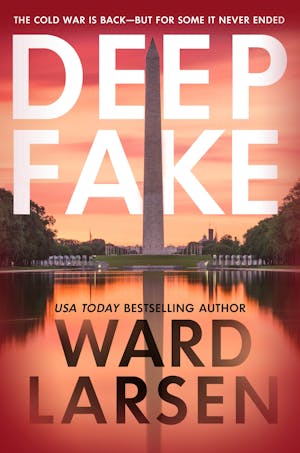 Absolute Power meets The Manchurian Candidate in this explosive political thriller from USA Today bestselling author Ward Larsen, Deep Fake.
Absolute Power meets The Manchurian Candidate in this explosive political thriller from USA Today bestselling author Ward Larsen, Deep Fake.
